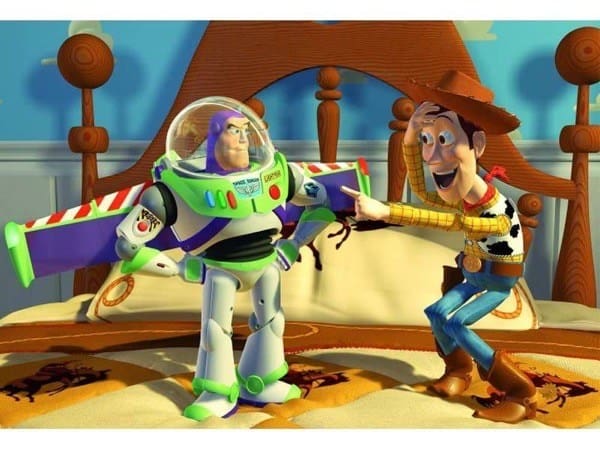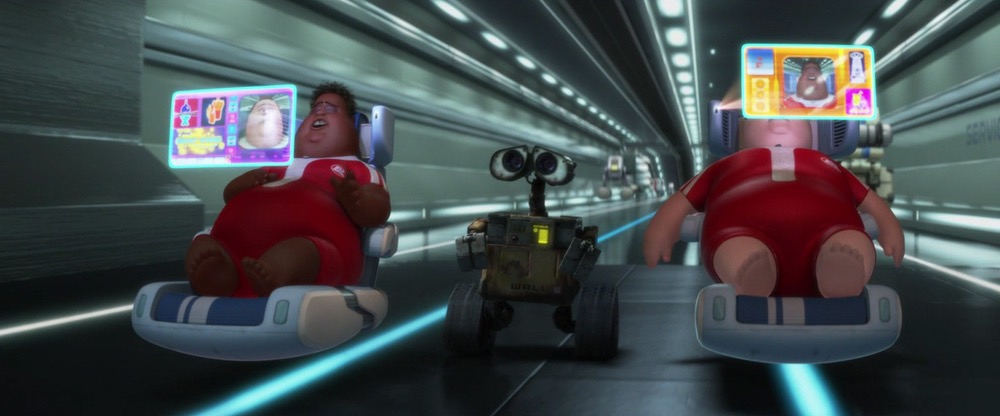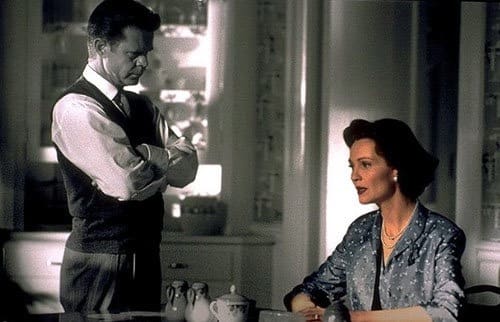Often a young filmmaker can leverage their own personal connection to a story, or its theme, to launch their career. They tap into something personal, have a unique perspective, or have an important story to tell that hasn’t been heard before. However, once they have established their career an attempt to dig back into their past or a desire to tackle a specific topic can often result in a forced story that stumbles on its way to artfully conveying it’s creator’s passion.
Finding yourself, but losing your direction
In 1995 Toy Story amazed audiences not only with its advanced computer generated animation, but its solid storytelling. For over a decade John Lasseter led Pixar to continually one-up itself in the quality of the films and stories being told. And then in 2006 Lasseter took the reigns on a film for the first time since 1999’s Toy Story 2. This was a project that developed out of his hiatus from directing and spending time with his family. In an interview Lasseter stated “I knew I was doing a movie about cars as a character, but I didn’t really know the story.” And it appears that the emphasis on character over story continued in the development of the film. Despite being the most lucrative merchandising opportunity of all the Pixar films, Cars and Cars 2 do not live up to the quality standards film-goers have come to expect from Pixar.

Cars felt like a film going through the motions. For me, it didn’t have the heart that its predecessors had. It’s the first Pixar film whose opening weekend box office was not larger than the Pixar film released before it. The Incredibles opened with a $70.5 million and Cars only $60.1. The film is entertaining, and better than many of the animated films being pushed at kids, however, it is on the bottom of my list of Pixar films.
How do the Cars films compare to other Pixar films? Here’s a link to the Pixar films on Flickchart and see for yourself where you place Cars and Cars 2.
The dangers of becoming didactic
Andrew Stanton began his career as a director on A Bug’s Life (1998) – the film that proved that Pixar’s success wasn’t luck, but that they had the creative talents to continue producing quality animated films. Five years after the success of A Bug’s Life, Stanton delivered Finding Nemo, the film that stood as the most successful Pixar film ever, until Toy Story 3 was released in 2010. Riding the wave of success from Finding Nemo, he brought to the screen a film that had the potential to be a well-adored classic. Unlike John Lasseter, he had a film that had a story, Unfortunately this film also had “Something Important” to say. Something so important that it dominated the second half of the film, and in my opinion, ruined its chances of becoming a timeless classic.
WallE could have been a contemporary silent film, a classic in the vein of Chaplin’s Little Tramp films. The moment the human characters appeared in WallE, I was momentarily disappointed, by still hopeful. When I saw that the story had been hijacked by an anti-consumerism screed, I was annoyed. When the film ended I was angry. I had been pummeled by a film that had “Something Important” that it needed to teach me. Of course the irony was that this film was from the studio that was filling shelves with Cars merchandise for us to consume.

While we’re on the topic of films that hammer home an “Something Important” at the expense of the story, let’s talk about Pleasantville. Gary Ross was responsible for bringing Big to the screen as writer and producer. It’s a classic tale, loved by many. Unfortunately, his first time behind the camera he chose to make a film that had “Something Important” to say.

The premise of Pleasantville is clever. It’s the classic fish-out-of-water tale, but rather than travelling to a new place, or time, the characters inhabit a place they are very familiar with – a television program. During their time there, amongst the jokes about the sanitized and white-washed picture of life portrayed in 1950’s television programs, a story about sexual awakening, racism, and hate take over film. By the end of the film, the small town of Pleasantville has become the arena for regurgitating everything we’ve ever seen in a movie about the civil rights movement: angry, stubborn, white men who rally against change to their comfortable lives, mobs marching down streets, teenagers enlightening their parents about the way the world is changing. It became every film I’d seen before that wanted to make sure that we don’t forget about the errors of the past, and the courageous fights that were fought so that today we can continue to live in a country where we are free, and not oppressed by the close-minded ways of the past.
The nostalgic grasp to recapture childhood
In 1989 John Hughes had graduated from his iconic high school films. It’s been several years since Pretty in Pink and Ferris Bueller’s Day off and the John Hughes scripted Some Kind of Wonderful, revealed itself as a retread of Pretty in Pink. Out of this vacuum rises a new voice to speak to a generation that is waiting for the heir of Hughes to say anything. Despite Pete and Andy’s recent revisiting of Say Anything… which emphasized some of the flaws of the film, there is no doubting that the film has established its place amongst classic teen romantic comedies as evidenced by this recent clip from the ABC sitcom The Goldbergs.
Nearly a decade passed before Crowe was able to share his story with us. His semi-autobiographical tale told in Almost Famous. A film that many adore. For me, this film is akin to sitting next to a guy in a bar that’s seen a lot and just has to tell you all the cool things he’s done. While it may be entertaining for music lovers to relive or re-experience the heyday of 70’s rock, this story is lacking. Crowe was so focused on telling his story, reliving his youth, he failed to create a story with any stakes to it.
Throughout the film I kept asking myself, “What has William got to lose in this story?” Nothing. He leaves home to pursue his dream. And if he fails … he’s back at home being an ordinary kid. There’s nothing for him to risk, and nothing for him to lose. The worst thing that can happen to him is that he goes home and has to be a teenager with a loving, although overprotective, mother. Almost Famous is merely a self-aggrandizing film from a mediocre film maker. (After the Almost Famous backlash dies down, perhaps you can attempt to convince me that Crowe’s film Jerry Maguire isn’t the story of a selfish, self-centered sports agent that uses a single mom to resurrect his career. And no, the line “You complete me.” isn’t romantic. It’s just another example of how selfish Jerry is. The statement is about what he can take from her, not about anything he is willing or capable of doing for her.)
When the mighty fall, it can kill a career. Diner, The Natural, Young Sherlock Holmes, Tin Men, Good Morning Vietnam, Rain Man, Avalon, Bugsy, and then… Toys. It’s hard for me to recount exactly what went wrong with this film. It’s something that I’ve only endured once, and don’t plan on subjecting myself to it again. Was it a debacle or a fiasco? I can’t decide. What I will forever remember is the teaser trailer: Robin Williams alone in a vast field. At least we’ll always have that.
